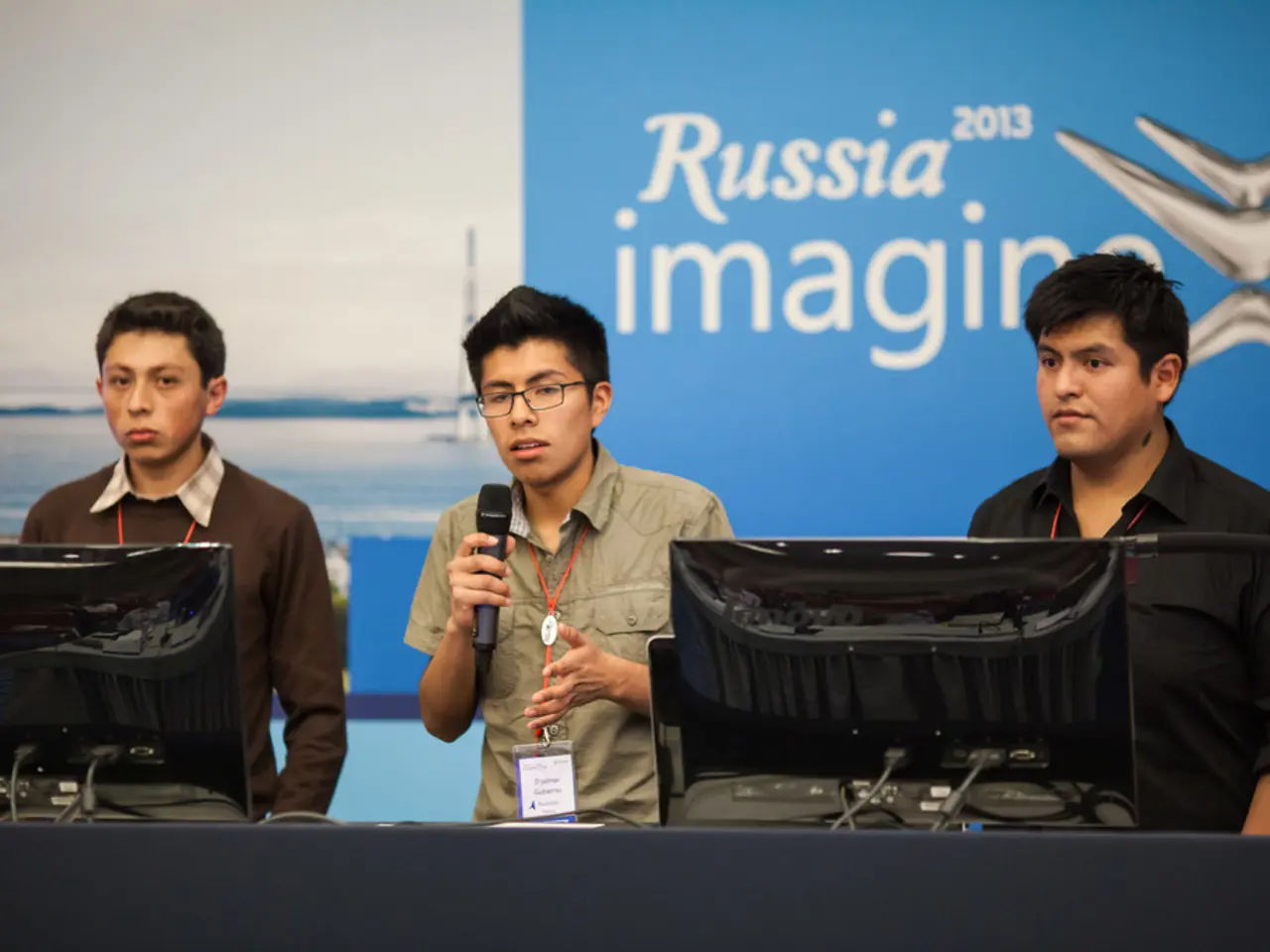UN Summer Program Investigation on AI Ethics Conducted by Computer Science Student at United Nations
PhD Student Wisdom Obinna Embraces United Nations Graduate Study Programme
Wisdom Obinna, a Ph.D. student in computer science at Georgetown University, recently participated in the United Nations Graduate Study Programme (GSP) at the United Nations Office in Geneva. This intensive two-week summer seminar offers a unique platform for Ph.D. students, particularly those with an interest in the intersection of technology and global governance, to gain insights into the United Nations and the broader context of "International Geneva".
The programme provides a crash course on how the U.N. operates and the multilateral diplomacy that shapes international cooperation. Participants, like Obinna, gain exposure to high-level policy discussions on global challenges, which can inform and inspire interdisciplinary research approaches.
Obinna, who has a long-standing interest in working with the United Nations, was selected among over 1,250 applicants for the programme. His group at the seminar worked on recommendations for the ethical use of emerging technologies, including AI, quantum computing, and brain-computer interfaces.
During the summer session, Obinna's cohort spent mornings meeting with U.N. officials and afternoons debating global topics and writing guidelines for the U.N. Obinna spent more time learning than teaching during the U.N. programme.
Obinna's experiences in the U.N. programme encouraged him to approach interdisciplinary collaboration in new ways. His research at Georgetown focuses on how AI is affecting artists' creative agency. However, this summer's experiences have added a new dimension to his research by urging him to consider the worldwide effects of rapid technological advancement across sectors.
Miladin Bogetic, program coordinator for the U.N. Graduate Study Programme, described the summer session as a crash course on the U.N. and multilateralism. Working in U.N. conference rooms with fellow students and international diplomats was a dream come true for Obinna.
Obinna's participation in the U.N. Graduate Study Programme was funded by the Fritz Family Fellowship. Prior to this, Obinna was a Fritz Family Fellow at Georgetown University's Tech & Society initiative. He also participated in the FASPE fellowship, which focused on the historical context of the Holocaust and ethical technology practices.
In the FASPE fellowship, Obinna's team discussed how AI's automation and content generation capabilities are reshaping global privacy, safety, and security. Obinna believes his research can be a tool for contributing to the greater good, and his experiences in the U.N. programme have reinforced this belief. After the programme, Obinna left inspired to learn new languages and continue advocating for socially smart tech.
In conclusion, the United Nations Graduate Study Programme provides a unique platform for Ph.D. students in computer science to contextualize their technical work within international policy environments, expand their global network, and develop interdisciplinary approaches that align their research with global challenges and ethical governance.
- Wisdom Obinna, as a Ph.D. student in computer science, applied his research on artificial-intelligence (AI) to explore how it affects artists' creative agency at Georgetown University.
- Obinna's participation in the United Nations Graduate Study Programme offered a crash course on the United Nations (environment) and multilateralism, inspiring him to broaden his research perspective beyond personal-growth to include global challenges and ethical governance across sectors.
- The faculty at Georgetown University provided funding for Obinna's attendance in the United Nations Graduate Study Programme through the Fritz Family Fellowship, which also supported his previous fellowship at Georgetown's Tech & Society initiative.
- Ex exposure to high-level policy discussions on global challenges during the United Nations Graduate Study Programme has motivated Obinna to advocate for socially smart technology (technology) that enhances education-and-self-development and addresses worldwide effects of rapid technological advancements.




